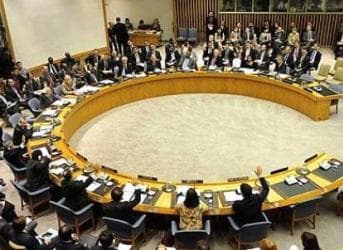Officials from New Delhi are due back from their recent trade visit to Iran with high hopes of an expanded economic relationship. India, together with Japan and China, buy about half of the oil Iran has for sale on the international market. New Delhi had faced difficulties in paying for the crude oil it buys from Iran because of expanded economic sanctions imposed by Western governments. Given the initial criticism offered by the Indian Embassy in the United States, it's unlikely any level of Western criticism is going to do much to diminish India's appetite for Iranian crude.
India sent around 70 business and government officials to Iran during the weekend to deepen economic ties. India buys about $14 billion worth of oil from Iran per year but sells only $2.7 billion in goods back to the Islamic republic. Tehran said it was happy to receive whatever sort of payment it could get for its crude oil and, given the optimism expressed by both sides, it's likely that sanction-busting was prominent on the agenda in Tehran.
Reports from New Delhi last week suggested authorities there had arrested a man they believe was tied to a bombing that targeted Israeli delegates in the country. The man, a journalist, was said to have ties to the Iranians, though his legal team maintains that's left over from his coverage of the Iran-Iraq war. Nevertheless, some U.S. authorities and pro-Israeli groups have accused New Delhi of working against Western interests given the heightened concern over Iran's nuclear activities. How can Tehran be discouraged, they argue, if major economies like India's have no problems dealing with the Iranians.
But that's precisely the point made by Indian officials. U.S. officials have few issues with the role Tehran plays in the multilateral effort in Afghanistan so perhaps some concessions could be made for energy as well. New Delhi maintains that it's opposed to a nuclear Iran but is mindful of national concerns like energy. Though overall, Iranian crude oil exports are on the decline because of sanctions pressure, getting oil from a close neighbor makes strategic sense for New Delhi.
New Delhi makes the case that the tighter the sanctions get on Iran, the higher the oil price is for others in the interconnected energy market. U.S. lawmakers are sniping over $4-per-gallon gasoline because of Iranian tensions so the fallout for the 1.2 billion people in India that rely in part on Iranian oil can be equally severe. Nevertheless, the embassy maintains, "crude imports from Iran constitute a declining share of India’s oil imports."
Iran's oil and natural gas reserves aren't explicit national security issues. In some aspects, neither is its nuclear program. A nuclear-armed Iran is a major threat, but it isn't armed with the bomb yet. In some respects, sanctions on Iran's energy sector are sanctions on the world. Adherents to the notion that interdependence creates stability argue that the more world is connected, the more likely all of the players will behave. Rather than restricting what's arguably the life-blood of the global economy, those concerned about Iran's nuclear ambitions should encourage players like New Delhi to try a dual course rather than risk isolating a major Western ally in the cold war game of Iranian nuclear diplomacy.
By. Daniel J. Graeber of Oilprice.com



















Why is not a nuclear armed Israel or Pakistan an equally major threat? Or even a nuclear armed Saudi?
Thanks